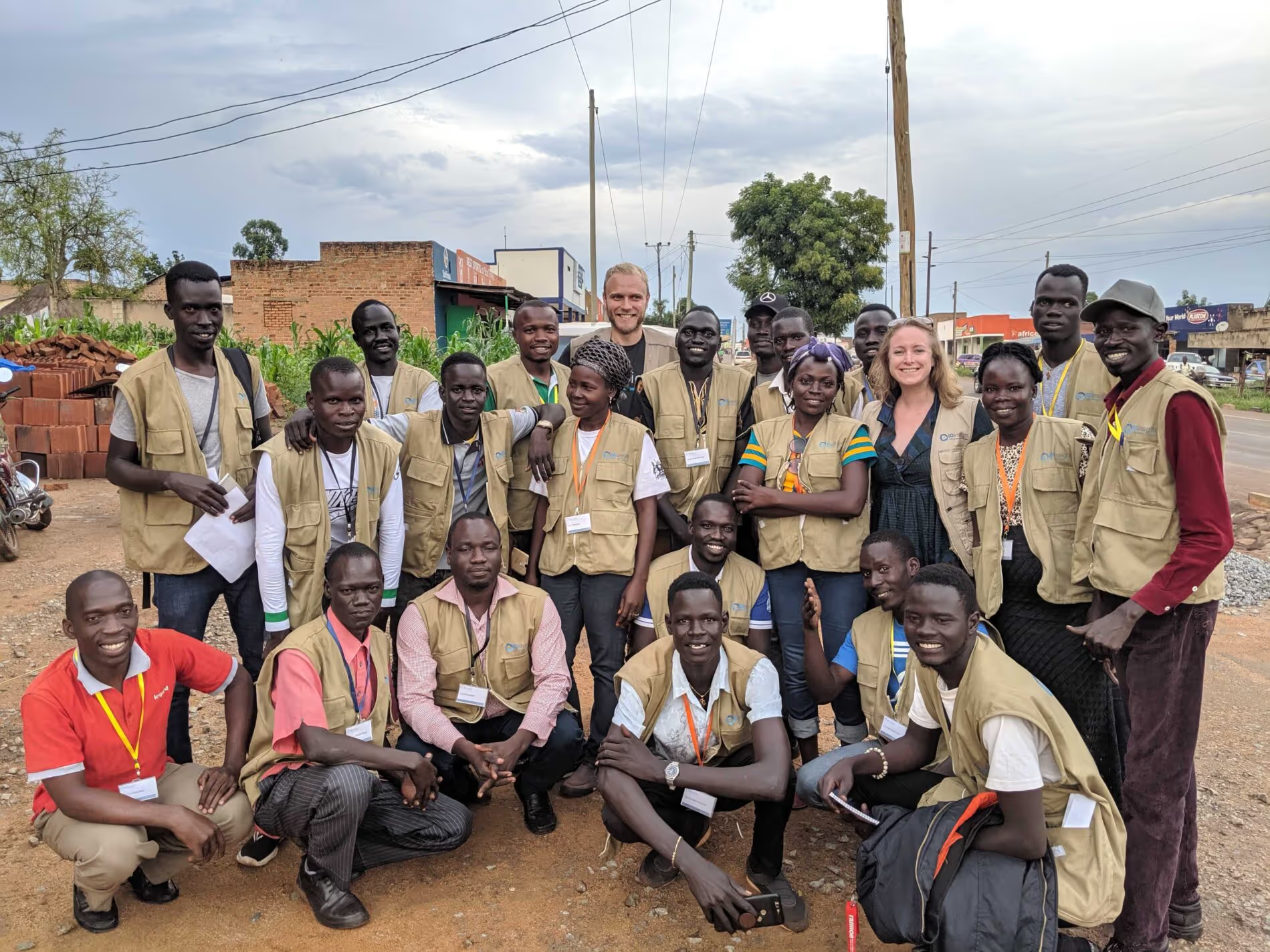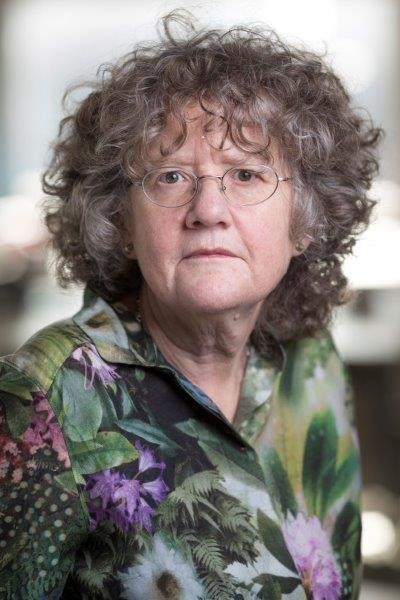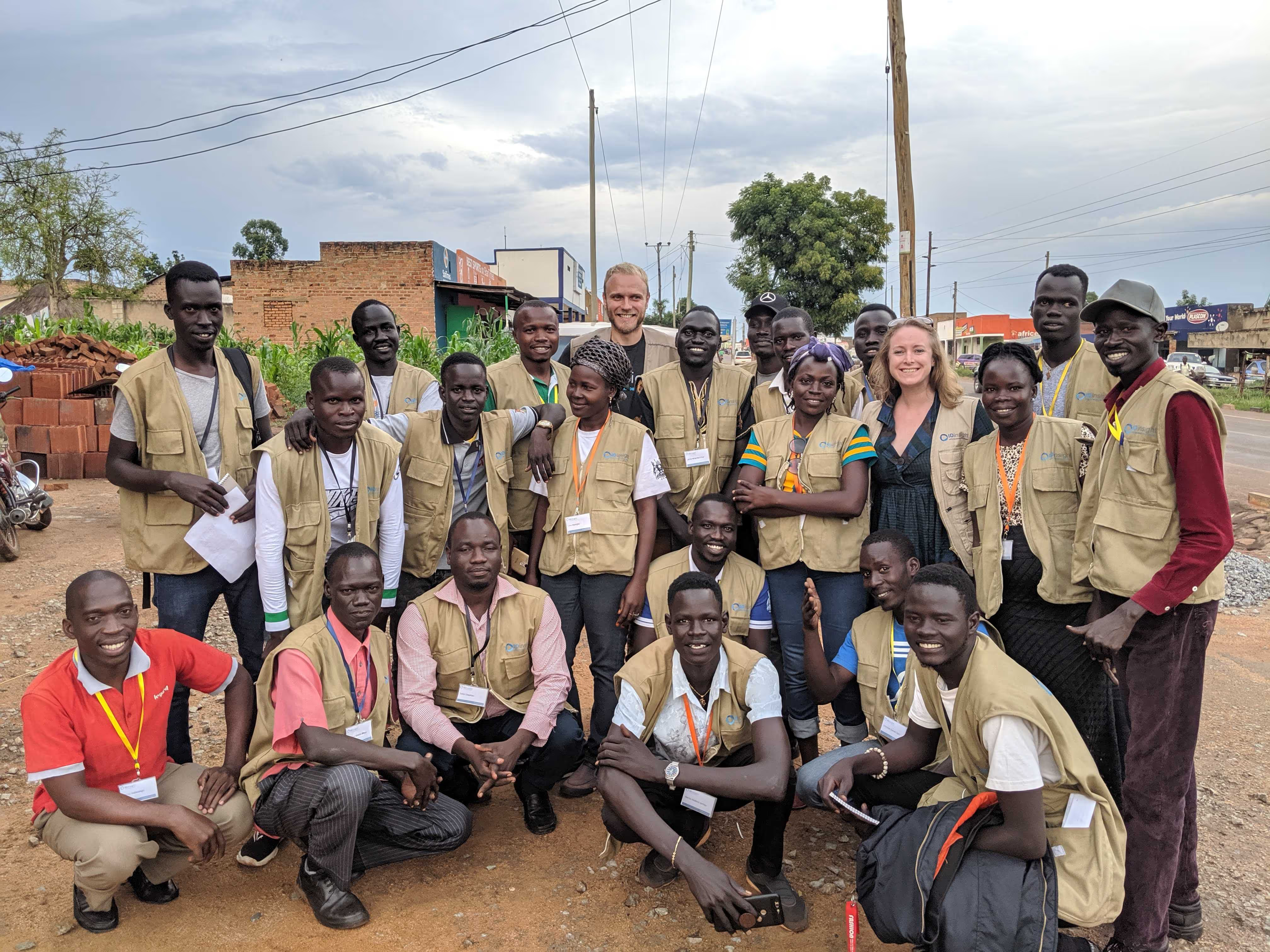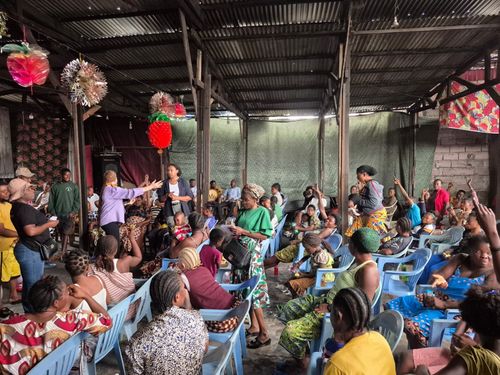Cash transfers and COVID-19: Experiences from Kiryandongo, Uganda

Project overview
IDinsight examined how large, unconditional cash transfers influence refugee household knowledge and behaviours during a pandemic. They concluded that one-off cash-transfers do not guarantee food security, and that food insecurity should be considered alongside assessment of future risks of COVID-19 infection in Kiryandongo Refugee Settlement in Uganda.
Countries
Uganda
Organisations
IDinsight
Partners
GiveDirectly
Area of funding
Humanitarian Research
Grant amount
£92,336
Start date
01
May
2020
End date
01
December
2020
Project length (in months)
7
Funding calls
Focus areas
Topics
Cash transfers
Status
Closed
Project solution
This project offers [specific solution or intervention] to tackle [challenge]. By implementing [strategies, tools, or innovations], the project aims to achieve [desired outcomes]. The approach is designed to [specific actions or methods] to bring about meaningful change in [community, region, or issue area].
Expected outcomes
This project aims to achieve [specific outcomes], such as [measurable results, improvements, or changes]. The expected impact includes [benefits to the target community, advancements in research or innovation, or long-term effects]. By the end of the project, we anticipate [specific changes or milestones] that will contribute to [broader goals or objectives].
Principal Investigators: Dr Daniel Stein and Dr. Heather Lanthorn (IDinsight)
Research Snapshot
The study found that one-off cash transfers did not achieve food security for all refugees- but do provide moderate protection from food insecurity. Food insecurity should be considered alongside assessment of future risks of COVID-19 infection in the settlement.
[.cta_link]View snapshot[.cta_link]
What did the study set out to achieve?
Little is known about the effects of large cash transfers in contexts of protracted displacement. This includes the influence of cash transfers on health behaviours during shocks such as the COVID-19 pandemic.
IDinsight planned to develop evidence in this area by building on an ongoing impact evaluation of GiveDirectly’s unconditional cash transfer program in Kiryandongo refugee settlement, Uganda. They compared refugee households who have already received their GiveDirectly cash transfer with refugee households who were scheduled to receive their cash transfer in the near future, in order to develop better evidence on how unconditional cash transfers influence refugee household knowledge and behaviours during a pandemic.
Using three rounds of structured phone surveys, the team gathered data on a variety of outcomes including food security and responses to COVID-19.
What were the key findings?
- Refugee households are food insecure. Overall, both households that had and had not received their cash transfer were food insecure in October 2020. 79% of control respondents and 73% of treatment respondents skipped at least one meal in the prior week.
- Cash transfer recipients experience moderately less food insecurity. In both July and October 2020, food insecurity is moderately reduced -- by 0.2SD on a food insecurity index -- among households who received the transfer compared to those who had not.
- Respondents regularly leave their house and grounds. In October 2020, 85% of respondents reported leaving their homes at least once in the past week. Only one-third of these could maintain social distancing while out. While 84% of respondents reported wearing masks when out, they said others did not.
What does this mean for policymakers and practitioners?
Large, one-off cash transfers, provided before a shock provide moderate protection against food insecurity several months after the shock began. However, large unconditional cash transfers do not achieve food security for all in the context of a widespread shock like a pandemic, which combined increased market prices, reduced employment, eliminated school lunches, and reduced humanitarian aid.
If food security and nutrition are key policy goals, large cash transfers may not be the optimal policy for this environment. Households tended to use the transfers on bulky spending needs (such as home improvement), which don’t translate directly into improved food security.
Food insecurity should be considered alongside assessment of future risks of COVID-19 infection
in the settlement. With further cuts in monthly food/cash rations planned in February 2021, people’s ability to stay home or stay distanced will likely further drop in order to earn income for food and other needs.
Next steps
For more information and recent updates please visit IDinsight’s website.

No items found.
Project delivery & updates
Stay up to date with the latest developments from this project. Here, you will find details on what has been delivered, resources created, and regular updates as the project progresses. Access key documents, reports, and other materials to see how the project is making an impact.
No resources/updates have been published yet for this project. Sign up for our newsletter to stay informed about upcoming publications and updates!
Join our Newsletter
Resources
Cash transfers and COVID-19: Experiences from Kiryandongo, Uganda. Mini-report- Round 1 of 3
Report
LEARN MORECash transfers and COVID-19: Experiences from Kiryandongo, Uganda. Mini-report- Round 2 of 3
Report
LEARN MORECash transfers and COVID-19: Experiences from Kiryandongo, Uganda. Mini-report- Round 3 of 3
Report
LEARN MORECash, COVID-19 and aid cuts: a mixed-method impact evaluation among South Sudanese refugees
Journal article
LEARN MORE









